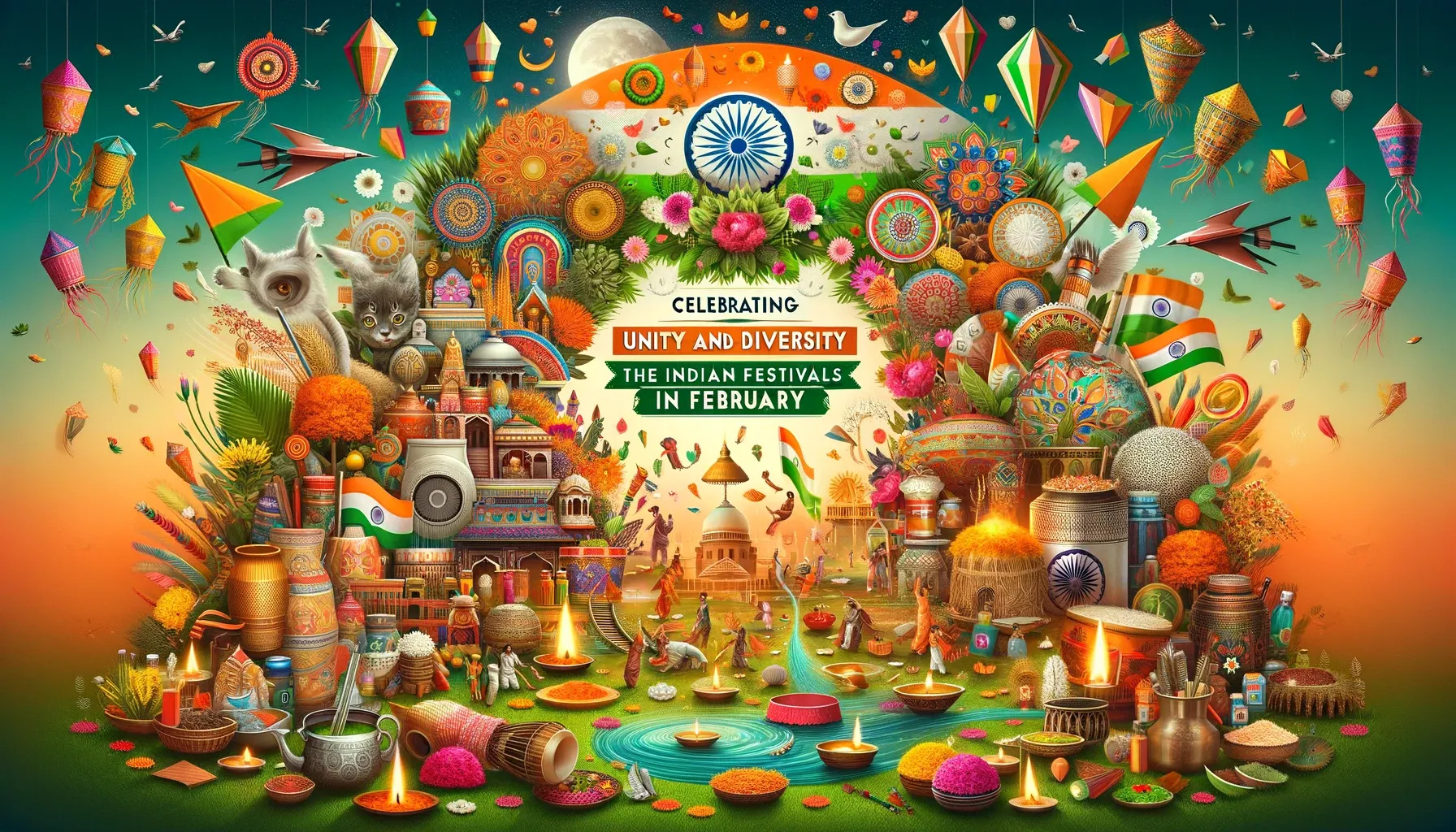Introduction to February Festivals in India:
February in India is a month brimming with cultural vibrancy and spiritual fervor. It marks a period when the winter starts to give way to spring, setting the stage for a series of festivals that are celebrated with great enthusiasm across the country. These festivals, ranging from harvest to religious and regional celebrations, not only illuminate the diverse cultural landscape of India but also offer a deep spiritual experience and a chance to reflect on life's cyclical nature.
Basant Panchami (Date Varies,14 february 2024):
- Basant Panchami heralds the arrival of spring. This festival is dedicated to Saraswati, the goddess of knowledge, music, art, wisdom, and learning. Schools and educational institutions conduct special prayers, and yellow, a color symbolizing the vibrancy of spring, dominates the day's attire and decorations.
Guru Ravidas Jayanti (24 February):
- Guru Ravidas Jayanti celebrates the birthday of Guru Ravidas, a prominent saint and spiritual figure of the Bhakti movement in North India during the 15th to 16th century. Renowned for his devotional poetry and songs, Guru Ravidas preached the message of equality, brotherhood, and the elimination of social divisions based on caste. His teachings emphasized the importance of inner purity and devotion to God over ritualistic practices. Celebrated on Magh Purnima, the full moon day in the month of Magh (January-February), devotees honor his legacy by reading his poems, participating in processions, and partaking in community meals, symbolizing his vision of a casteless society.
Chhatrapati Shivaji Maharaj Jayanti (19 february):
- Chhatrapati Shivaji Maharaj Jayanti commemorates the birth anniversary of Shivaji Maharaj, the founder of the Maratha Empire in India. Celebrated with great fervor on February 19th, this day honors Shivaji's bravery, governance, and dedication to promoting Marathi and Sanskrit. Shivaji Maharaj, born in the 17th century, is revered for his military tactics, fort constructions, and naval establishments, which played a pivotal role in resisting Mughal expansion in India. The Jayanti is marked by colorful processions, reenactments of his life, and cultural programs, reflecting the enduring legacy of Shivaji Maharaj as a symbol of Marathi pride and valiant leadership.
World Cancer Day (4 february):
- World Cancer Day, observed annually on February 4th, is a global initiative led by the Union for International Cancer Control (UICC) to raise awareness about cancer and to encourage its prevention, detection, and treatment. This day serves as a powerful platform to challenge misconceptions, spread knowledge, and mobilize support for those affected by cancer worldwide. With its theme varying each year, World Cancer Day aims to significantly reduce illness and death caused by cancer through education and advocacy. Activities include educational talks, health screenings, and fundraising events, emphasizing the importance of early detection and lifestyle changes in cancer prevention.
Valentine's Day (14 februray):
- Valentine's Day, celebrated annually on February 14th, is a global festivity of love and affection between intimate companions and friends. Originating from ancient Roman traditions and the legend of Saint Valentine, this day has evolved into a universal celebration. Across the world, individuals express their love through the exchange of gifts, such as flowers, chocolates, and heartfelt notes. Valentine's Day transcends cultural and geographical boundaries, embodying the essence of love in its myriad forms. It encourages people to take a moment from their daily lives to appreciate and express their feelings for loved ones, making it a cherished occasion in many hearts.
Conclusion: The Essence of Celebrating Together
The festivals of February encapsulate the essence of Indian culture—its unity in diversity, the richness of its traditions, and the enduring strength of its communal bonds. As we participate in these celebrations, we are reminded of the importance of preserving these traditions for future generations, ensuring that the vibrant tapestry of Indian culture continues to illuminate the world.
FAQs:
What is the other name of Basant Panchami?
- Basant Panchami is also known as Saraswati Puja.This day is also known as Shri Panchami and Gyan Panchami.
Why is the festival of Basant Panchami celebrated?
- Basant Panchami is celebrated to welcome the arrival of spring and to honor Saraswati, the Hindu goddess of knowledge, music, art, wisdom, and learning.
Who is worshiped on the day of Basant Panchami?
- On the day of Basant Panchami, Goddess Saraswati, the deity of wisdom, learning, and the arts, is worshipped.
Why Guru Ravidas Jayanti is celebrated?
- Guru Ravidas Jayanti is celebrated to honor the birth anniversary of Guru Ravidas, a revered saint and poet of the Bhakti movement known for his messages of equality and unity.
Is Ravidas Jayanti national holiday?
- Ravidas Jayanti is not a national holiday in India, but it is widely celebrated in parts of North India.
Please follow us on our social site and YouTube and subscribe to our website.
Manage your business cash flows and payable/receivables using our Bahi Khata App.
